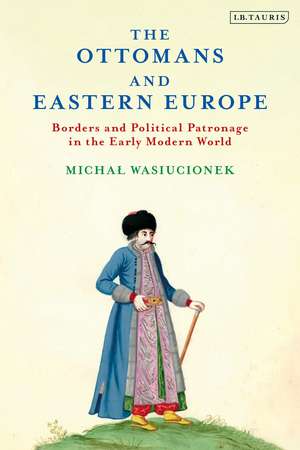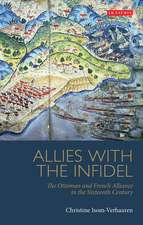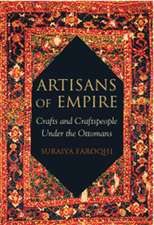The Ottomans and Eastern Europe: Borders and Political Patronage in the Early Modern World: The Ottoman Empire and the World
Autor Michal Wasiucioneken Limba Engleză Paperback – 23 dec 2020
| Toate formatele și edițiile | Preț | Express |
|---|---|---|
| Paperback (1) | 219.01 lei 6-8 săpt. | |
| Bloomsbury Publishing – 23 dec 2020 | 219.01 lei 6-8 săpt. | |
| Hardback (1) | 658.11 lei 6-8 săpt. | |
| Bloomsbury Publishing – 26 iun 2019 | 658.11 lei 6-8 săpt. |
Preț: 219.01 lei
Preț vechi: 275.59 lei
-21% Nou
41.91€ • 45.66$ • 35.31£
Carte tipărită la comandă
Livrare economică 23 aprilie-07 mai
Specificații
ISBN-10: 0755638530
Pagini: 296
Ilustrații: 7 b/w
Dimensiuni: 156 x 234 mm
Greutate: 0.41 kg
Editura: Bloomsbury Publishing
Colecția I.B.Tauris
Seria The Ottoman Empire and the World
Locul publicării:London, United Kingdom
Caracteristici
Notă biografică
Cuprins
Descriere
In the seventeenth century, previously peaceful relations between the Ottoman Empire and the Polish-Lithuanian Commonwealth deteriorated into a series of military confrontations over the principalities of Moldavia and Wallachia. Although scholars have generally interpreted this rivalry in terms of conflicting geopolitical interests, this state-centred approach ignores one of the most important developments of the period: the devolution of power away from rulers and formal institutions towards political factions. Drawing on Ottoman, Polish and Romanian sources, The Ottomans and Eastern Europe explores the complex interplay between regional politics and the rise of factionalism, focusing on cross-border patronage between Ottoman, Polish-Lithuanian and Moldavian elites. By approaching the history of the region from a factional, rather than state-centred perspective, this book investigates an alternative geography of power, defined by personal interactions that straddled religious, political and social boundaries between the elites. Wasiucionek reveals the way in which these interactions not only shaped the Ottoman-Polish rivalry over Moldavia, but also influenced political culture throughout the region.






